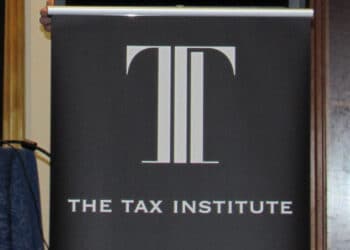Naz Randeria, managing director of Reliance Auditing Services, said as the government eyes its next round of “wealth tax” reforms, CGT is shaping up to be the next major battleground.
“While the move is being framed as a push for fairness, I believe the real impact could be far more damaging — particularly for SMSFs, property investors, and anyone relying on long-term wealth creation,” Randeria said.
“With Treasurer Jim Chalmers reportedly looking for his next ‘wealth tax’ opportunity, and a senate inquiry into CGT underway, it feels like déjà vu. The 50 per cent CGT discount on assets held for more than 12 months — long considered a reward for long-term investing — has become the latest target.”
Randeria said she believes that super tax legislation, due to start on 1 July 2026, signals a “mindset shift” and the definition of “wealthy” will set a precedent for other structures to be impacted.
“The super system was just the first domino. CGT, with its long-standing 50 per cent discount – or one-third discount for superannuation – is clearly the next,” she said.
“For me, this isn’t just a tax issue — it’s a confidence issue. It’s about how we, as a nation, frame long-term wealth creation. When saving, investing, and planning for the future are penalised, we risk undermining the very behaviours that build economic resilience.”
Randeria continued that many reform advocates have argued that the CGT discount disproportionately benefits property investors and high-net-worth individuals.
“The discount isn’t a loophole — it’s an adjustment that recognises inflation, risk, and the value of patient investing. Removing or reducing it would make long-term investment less attractive, push more people toward short-term speculation, and create unintended distortions in both the property and equity markets,” she said
“It’s politically convenient to label the discount as ‘generous’, but economically, I believe it’s sound policy that supports stability and growth.”
Randeria said until there is some certainty about how the government will treat CGT she is advising SMSF trustees to be aware and stay informed.
“This is not a time for complacency. There’s no solid evidence that tinkering with the CGT discount will fix Australia’s housing crisis. In fact, it could do the opposite. Reducing incentives for property investment may drive investors out of the market, limit rental supply even further, and ultimately push prices higher — not lower,” she said.
“Before major reform is pushed through under the banner of ‘fairness’ or ‘affordability’, I think we need to ask the hard questions: what analysis actually supports this move? Where’s the modelling that proves it will help Australians get into housing, rather than make the situation worse?
“For SMSF trustees — and indeed for all investors — my message is simple: stay alert. In this environment, staying alert to what’s next might just be the smartest investment strategy left.”



Fairness would say that if they want to remove the 50% discount they should allow capital losses to be offset against ordinary income. The discount not only represents a simplification for inflation but also a reward for risk taking in investing.
The investor takes all the risk and the government takes up to 23.5% of the reward with no allowance given for “Bracket Creep” resulting from all the capital gain pushing the taxpayer up through the various thresholds.
Seems the government want to kick with the wind all the time
I think the article is correct in that the government are underming the culture to save and be reworded in the future. They aren’t taking on the risk of the sharemarket or property. What they are doing is penalising those who are working to save for a comfortable future rather than blowing it all on a good time in the here and now. Aged care reforms are not helping either as those who are helping their parents whilst at the same time helping their children try to afford all the debt on property/HECs are saying hang on whats the point. The more the Government make stupid changes/decisions and back peddle way too late, the bigger the rabbit hole Australians will fall into.
Also David, if there is a re-introduction of indexation to account for inflation, it would be fair that it is linked to indexation of real estate.
Of course, the government needs money for its way-over-budget spending spree. The government is sending this country poor by not living within its means.
CGT is already such that when combined with State Stamp/Transfer Duties, people more often than not hold onto property, unless they are “flipping”.
Can’t do that Vee. CGT impacts equities, business sales, private assets, farmland, commercial and industrial real estate etc. Secondly which market Sydney (yay), Melbourne (boo) or Dunedoo in country NSW? National average is meaningless/irrelevant to almost all holdings. We can’t design a tax with just one asset in mind.
I would push back and suggest that the removal of the 50% and re-introduction of indexation would help reduce speculation and increase longer term thinking. Eg “house flipping” will be less attractive. 50% makes no sense in the very short term, indexation is fairer across the time horizon curve.
What we can’t allow the government to do is tax inflation though and just cancel the 50%. It’s better than nothing.